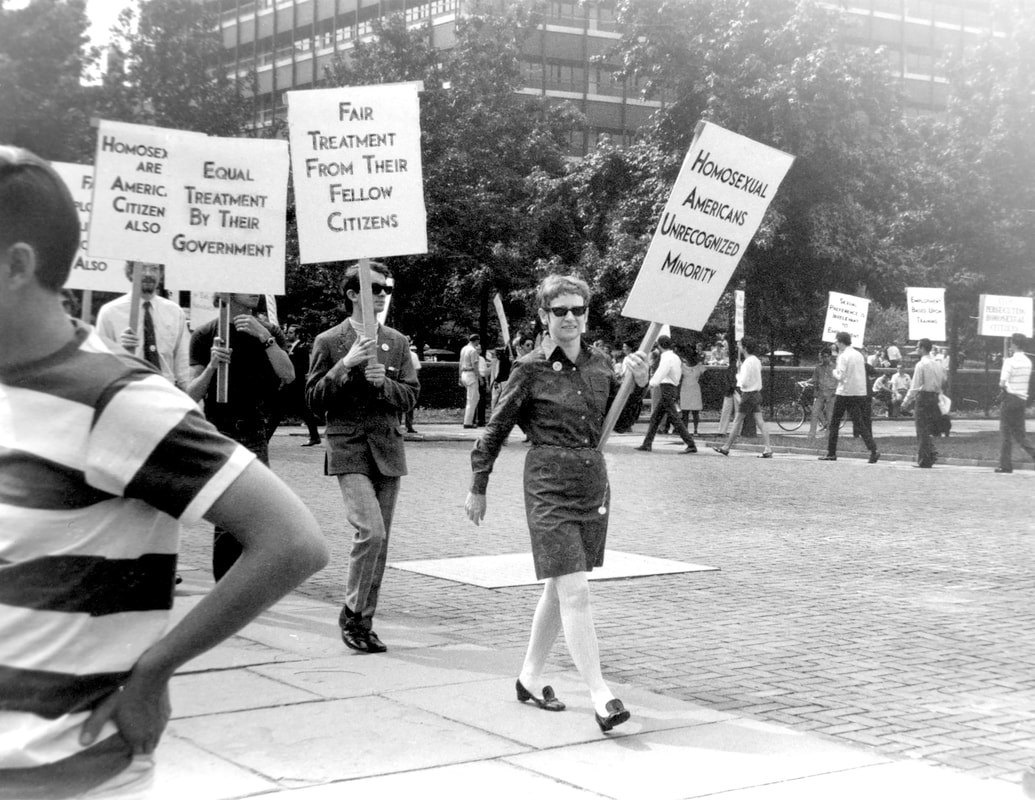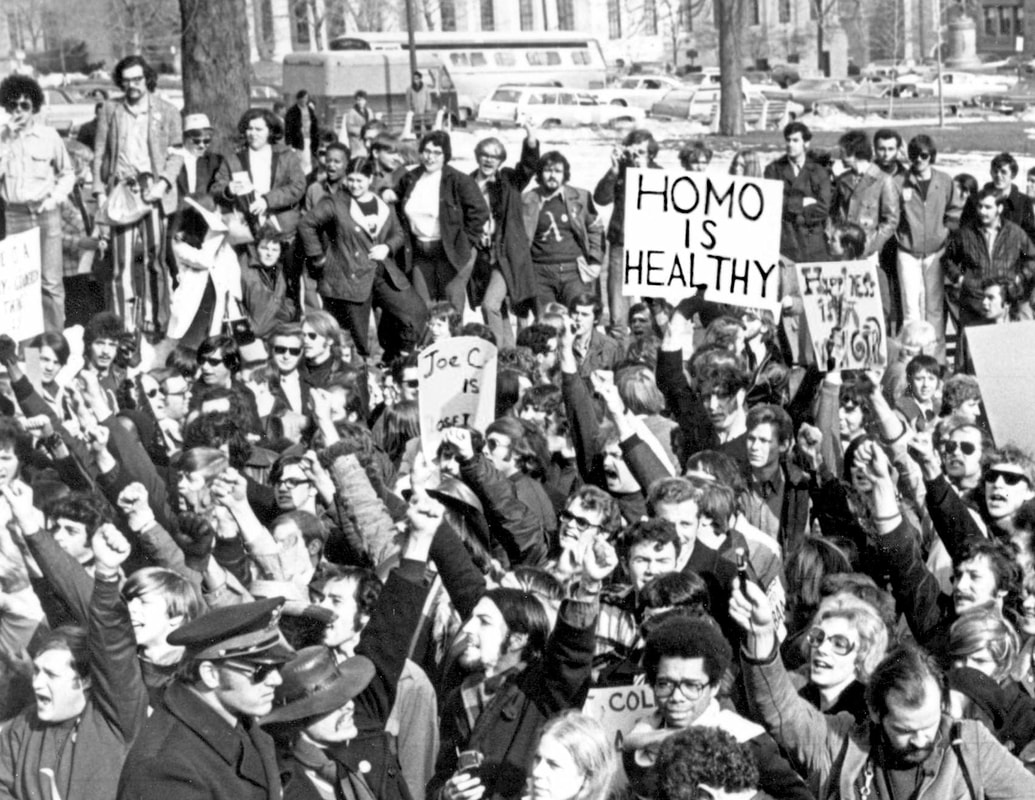|
Review by Sarah Williams
Yet another “never before seen footage” type doc, Cured does its job fairly well. It is the story of how gay activists went toe-to-toe with the APA to get homosexuality removed from the DSM listing as a mental illness, and its yet another gap filled in LGBTQ history (and the ludicrous claim that the removal of the listing 'cured' every documented homosexual). Newspaper clippings, archival footage, and narration blend together to give a clear picture of this law, and its removal, an end result that doesn’t leave much more than the true story itself.
Gay history is often viewed as dominating relationships between aristocratic men and peasants in Ancient Greece and Rome, then Stonewall, the the United States Marriage Equality Act in 2015. It’s a Euro-centric view of LGBTQ history, skipping around to just the parts that are harder to erase. Even within the US, so many smaller legal victories towards acceptance are overshadowed, and it's great to see this important act of removing the dehumanization of love documented the same way this more commonly discussed history is. It’s hard to believe that the heads of the scientific nation would go out of their way to list homosexuality as a mental illness, but this is conveniently scrubbed from history, always discussed as pure phobia, and not societal classification that this is defective. Of course, unless outspoken, lesbians were instead ignored or written off as close friendships, an odd safety. These kind of simple, direct docs may start to blend together, but it is important to note that we now see gay and trans history documented and released the same way other stories of a fight for equality have been. While some of these types of films may come off as merely serviceable nonfiction storytelling in a slate of imaginative fiction at an LGBTQ centered film fest, like Outfest or Frameline, this fits a specific niche. It’s educational content that doesn’t need to be sought out, and is made for more mass appeal in terms of filmmaking sensibilities, as this is something that many will genuinely learn from. 
Kay Lahusen joined other protesters on a picket line in front of Philadelphia’s Independence Hall on July 4, 1969. This protest marked the fifth “Annual Reminder,” a march held yearly on July 4 to remind Americans that LGBTQ citizens were denied basic civil rights. From Cured, directed by Patrick Sammon and Bennett Singer. Photo credit: Nancy Tucker, image courtesy of Lesbian Herstory Archives.
Even though Cured isn’t the most adventurous in terms of filmmaking, it fits into a key sector of cinematic purpose. It’s the sort of film that you’d find on PBS late at night, the way information seeps into your brain when the moon comes up, an after dinner haze where you don’t realize you’ve learned something until it slips out in conversation at a dinner party. It’s great to see this assembled in a manner that normalizes it as a piece of history, the same kind that plays on the TV wheeled into a classroom on a substitute teacher. It’s LGBTQ history 101, but our history is hardly told, and it’s nice to be able to watch something that unpacks it so clearly.
What I do want personally is for these historical documents to focus less on suffering and discrimination, and to see more gay and trans joy when history decided we did not exist. Even though it is shown through the eyes of the family around them, Netflix’s A Secret Love was a step in the right direction, showing the love between an older lesbian couple that had flown under the radar for so long. Of course, seeing the truth is never troubling, but it would be nice if the media a heterosexual audience sees shows more than just our oppression, and for them to see that light was even possible at the height of it. Cured had its world premiere at Outfest 2020. It is currently seeking distribution. Rating: 3/5
0 Comments
Leave a Reply. |
Archives
July 2024
Authors
All
|
|
|
disappointment media
Dedicated to unique and diverse perspectives on cinema! |

